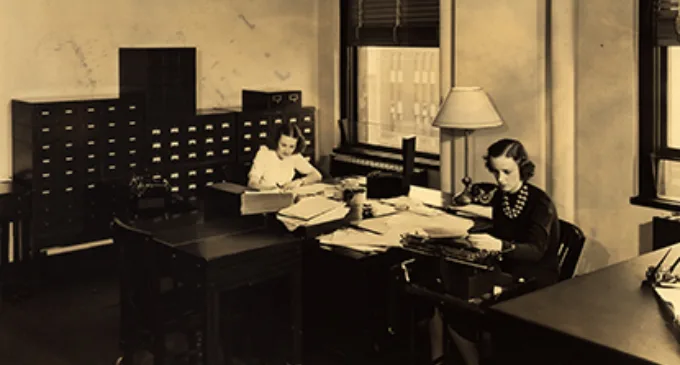A passion of mine is the history of women’s organizations. I am fascinated by how women's groups, large and small, operated in an environment that was not always accepting or willing to recognize them for what they were: a space in which women could reach out to other women, providing support and tackling the challenges that they, as women, identified as important. How did these organizations raise the funds to support themselves when many women did not control their own funds? How did they organize themselves when women’s chief responsibilities were in the home and—when women did work outside the home—they often experienced limitations on their ability to achieve positions of power and responsibility? I have lots of questions!
March is U.S. Women’s History Month, which often focuses on individual women who have not been given their due. (In Theta, we recognize such women not only in March but throughout the year.) Yet the history of Theta as an organization, as well as other women’s organizations, is an important component of women’s history … and not just in March. Kappa Alpha Theta—from its earliest days to the present—provides an example, a case study, of how one women’s organization dealt with issues of organization, finance, volunteers, and engagement not only with its own members but within the larger community.
Some may call board meeting minutes, budgets, and administrative publications a bit dull, but it is within these documents that we find the history of organizations like Theta and learn how they grew and adapted to the changing roles of women.
Look around you, and will find the influence of women’s organizations on your campus and in your community. If you read the Theta magazine from its beginnings in 1885, you see Thetas reaching out through the networks of women’s organizations. I am struck by how these women carried the leadership skills they learned in Theta to other women’s groups, as well as how Thetas brought the skills they learned in other women’s organizations back to Theta.
Historically, Theta provided a network and support structure both in college and beyond, and this continues today. I’m going to keep asking my questions and digging into the records. I will continue to share the stories of individual Thetas and of Theta-the-organization as it fits into the larger picture of women’s history.


